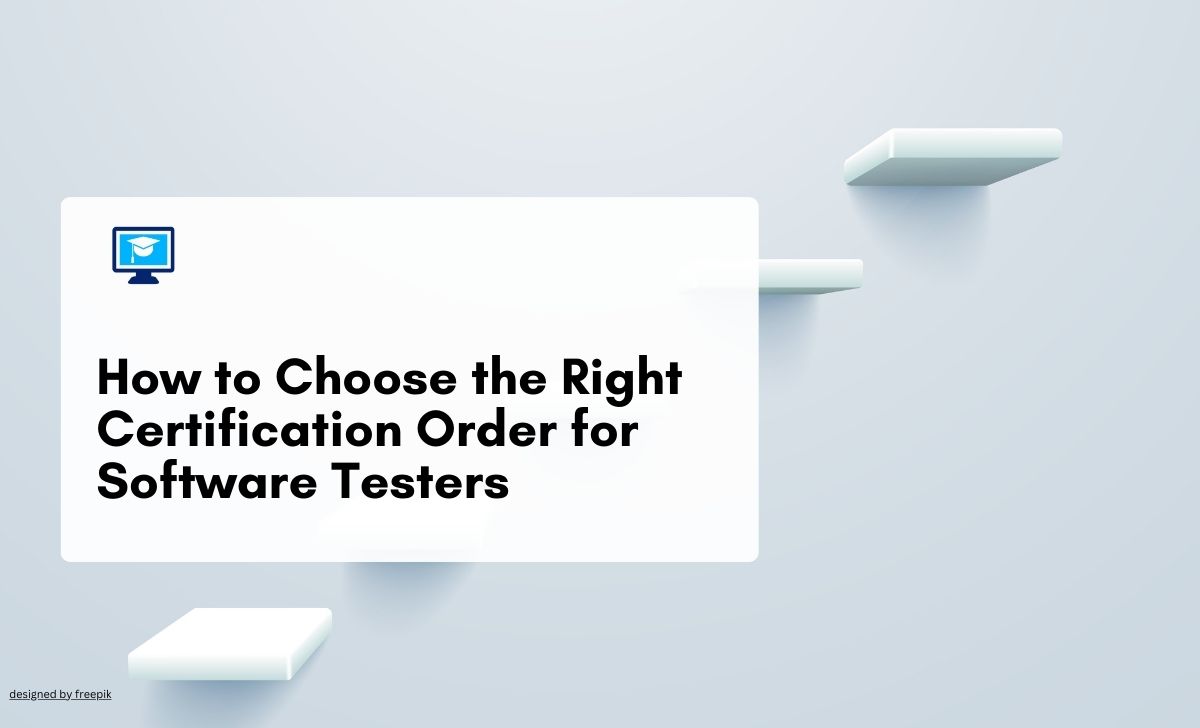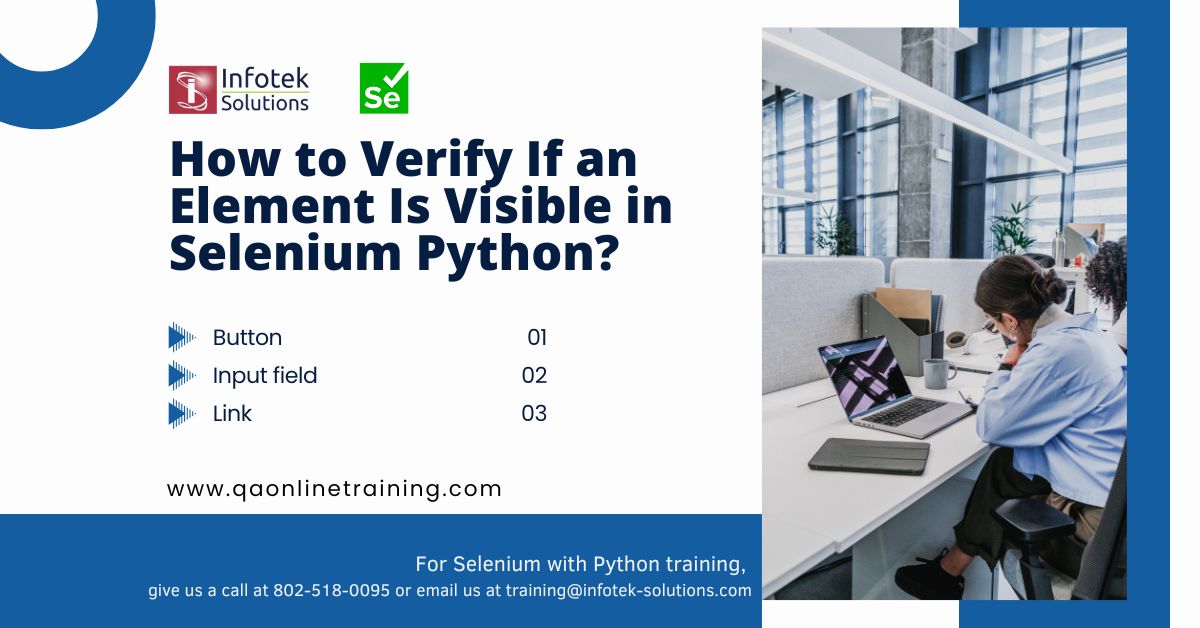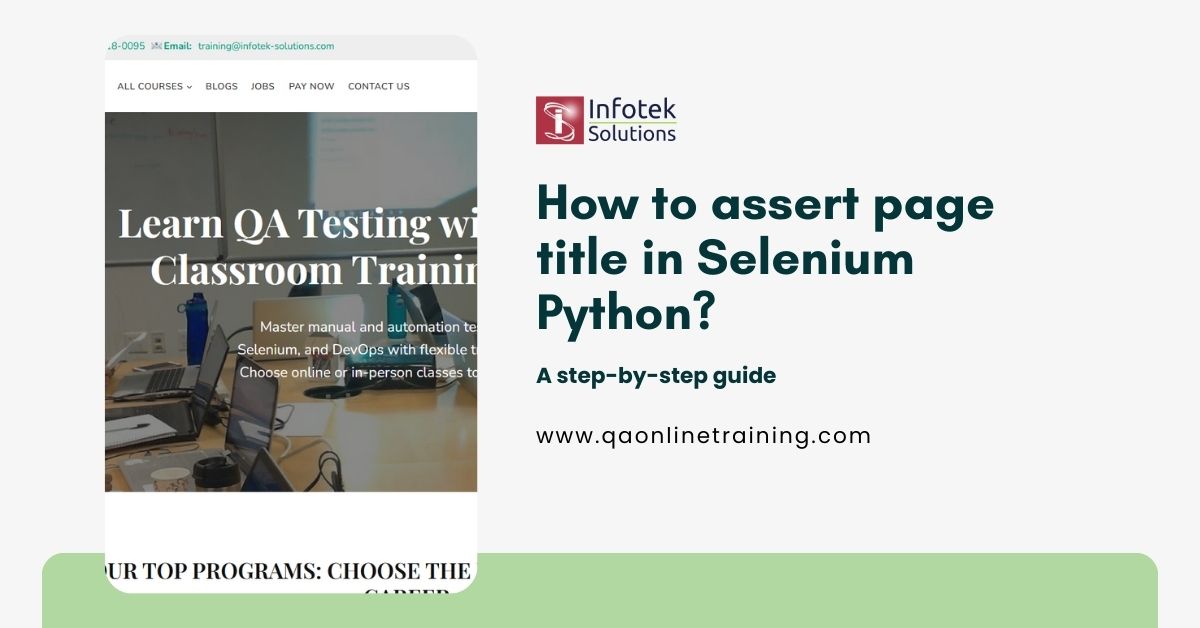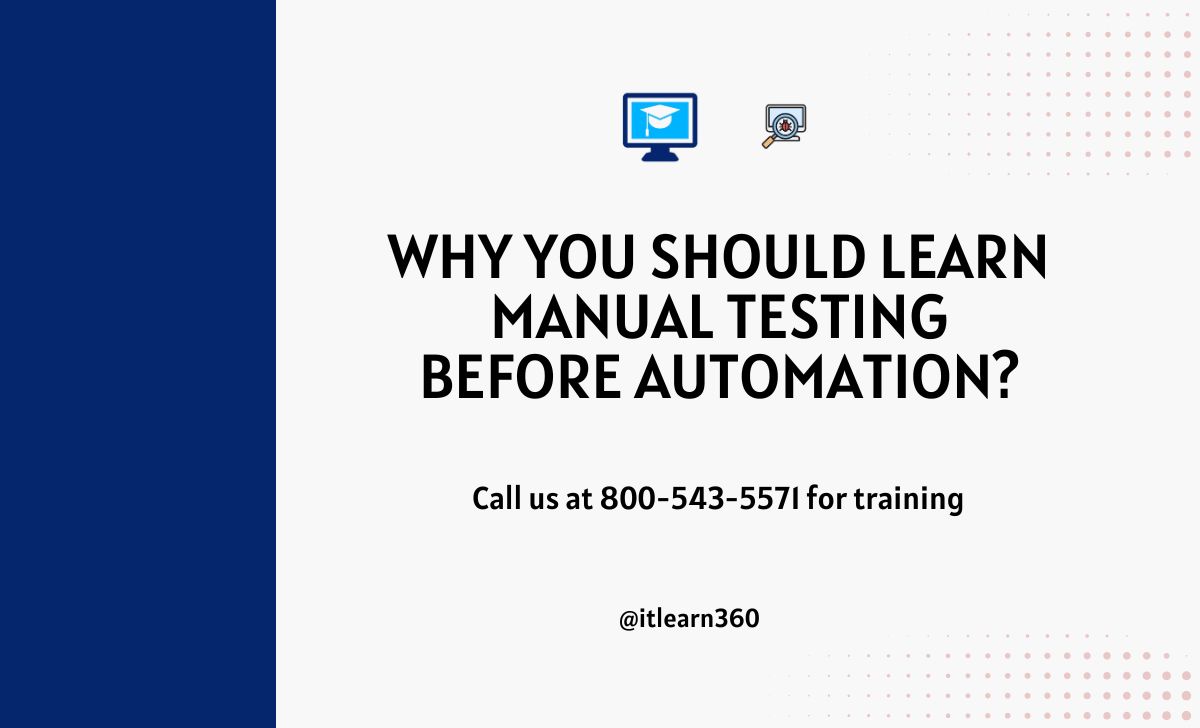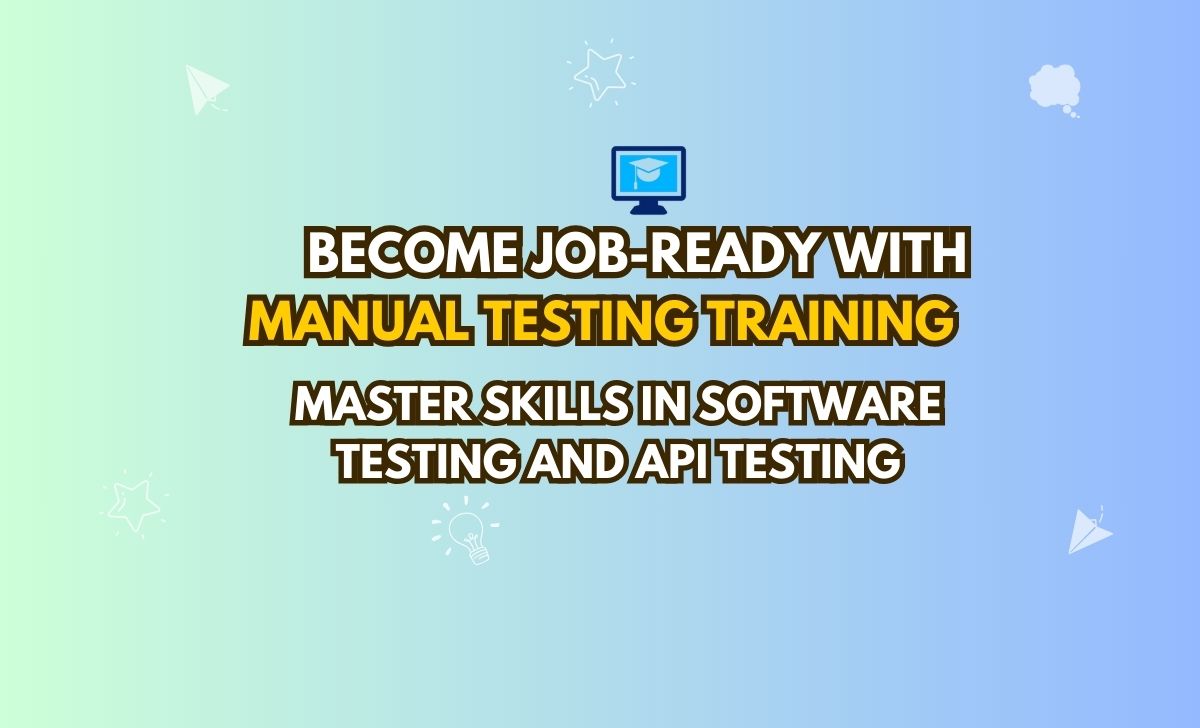Certifications are essential for a successful career in software testing. They validate your skills, enhance your credibility, and open doors to exciting opportunities. However, with so many certifications available, it’s essential to plan your learning journey wisely. This article provides a guide for choosing the right certifications based on your career stage and goals.
1. Understanding Your Current Skill Level
The starting point for selecting certifications is to assess your current knowledge and experience.
- Beginner:
If you are new to software testing, it is recommended that you start with foundational certifications that cover basic principles and methodologies.- Examples: ISTQB Foundation Level, Certified Associate in Software Testing (CAST).
- Intermediate:
If you have hands-on experience, consider pursuing certifications that further your expertise in specific areas, such as automation or performance testing.- Examples: Certified Selenium Professional (CSP), Certified Performance Tester (CPT).
- Advanced:
Experienced testers should seek certifications that enhance leadership or niche skills, such as security or DevOps testing.- Examples: ISTQB Advanced Level, Certified Ethical Hacker (CEH).
Takeaway: Tailor your certification choices to match your current expertise.
2. General Certification Roadmap
Follow this step-by-step approach to build a strong foundation and become more skilled over time.
Step 1: Start with Foundational Certifications
Fundamental certifications provide a solid comprehension of software testing principles.
- ISTQB Foundation Level Certification (CTFL):
Learn basic testing concepts, types, and life cycles. A globally recognized starting point. - Certified Associate in Software Testing (CAST):
Offers practical knowledge of testing processes, suitable for freshers.
Why It Matters: These certifications help you build your theoretical and practical knowledge, essential for advanced learning.
Step 2: Gain Practical Expertise
After getting basic certifications, choose tools and techniques that you enjoy.
- Manual Testing:
- ISTQB Advanced Test Analyst: Deep dive into test analysis and design techniques.
- Automation Testing:
- Certified Selenium Professional (CSP): Covers Selenium WebDriver, scripting, and frameworks.
- Certified Test Automation Engineer (CTAE): Focuses on creating and managing automation scripts.
- API Testing:
- Postman API Testing Certification: Learn API validation, scripting, and automation.
- SoapUI Certification: Specializes in testing REST and SOAP APIs.
Why It Matters: These certifications align with your specific role-specific goals and make you job-ready.
Step 3: Diversify with Specialized Certifications
Explore niche domains like performance, security, or Agile testing to expand your knowledge.
- Performance Testing:
- Certified Performance Tester (CPT): Covers tools like JMeter and LoadRunner.
- LoadRunner Certification: Enterprise-grade performance testing skills.
- Security Testing:
- Certified Ethical Hacker (CEH): Learn penetration testing techniques.
- Certified Application Security Tester (CAST): Focus on secure application development and testing.
- Agile Testing:
- ISTQB Agile Tester Certification: Learn to test in Agile environments.
- Certified Agile Tester (CAT): Understand Agile methodology and tester roles.
Why It Matters: Specializations make you indispensable in high-demand fields.
Step 4: Advance to Leadership Roles
At this stage, certifications prepare you for leadership or corporate positions.
- ISTQB Test Manager Certification (CTAL-TM):
Learn to manage testing processes, teams, and strategies effectively. - Certified Manager of Software Testing (CMST):
Focuses on improving team efficiency and testing processes. - Certified DevOps Test Engineer (CDTE):
Integrates testing into CI/CD pipelines, essential for DevOps environments.
Why It Matters: Leadership certifications open doors to roles like Test Manager or QA Director.
3. How to Tailor Certifications to Career Goals
Your career aspirations should guide your certification choices.
- Automation Expert:
Path: ISTQB CTFL → CSP → Advanced Automation Certifications like CTAE. - Performance Engineer:
Path: ISTQB CTFL → CPT → LoadRunner Certification. - Security Specialist:
Path: ISTQB CTFL → CEH → CAST. - Test Manager:
Path: ISTQB CTFL → ISTQB Test Manager → CMST.
Takeaway: Focus on certifications that align with the roles you aspire to achieve.
4. Certification Timelines
Plan your certifications based on time, cost, and complexity.
- Beginner Certifications:
- Duration: 1-2 months.
- Cost: $200-$300.
- Intermediate Certifications:
- Duration: 2-4 months.
- Cost: $300-$600.
- Advanced Certifications:
- Duration: 4-6 months.
- Cost: $600-$1,200.
Pro Tip: Set realistic timelines and prioritize certifications that yield the highest ROI.
5. Certification Preparation Tips
- Choose the Right Training Provider:
Opt for courses that provide hands-on experience and exam preparation. - Practice Real-World Scenarios:
Use tools like Selenium, JMeter, or Postman during your preparation. - Join Study Groups:
Engage with other learners through forums or LinkedIn communities. - Take Mock Exams:
Practice with sample tests to familiarize yourself with the format and questions.
Takeaway: Effective preparation increases your chances of success.
Conclusion
Choosing the right certification path can make or break your career in software testing. Start with foundational certifications to build a strong base, and then specialize in areas that match your interests and the market demand. Finally, pursue leadership certifications to climb the career ladder. It is important to keep in mind that certifications are not merely credentials, but rather investments in your future.
Call to Action: Ready to start your certification journey? Join ITlearn360’ training programs for expert guidance and hands-on preparation!
https://www.itlearn360.com/courses/software-testing-academy


